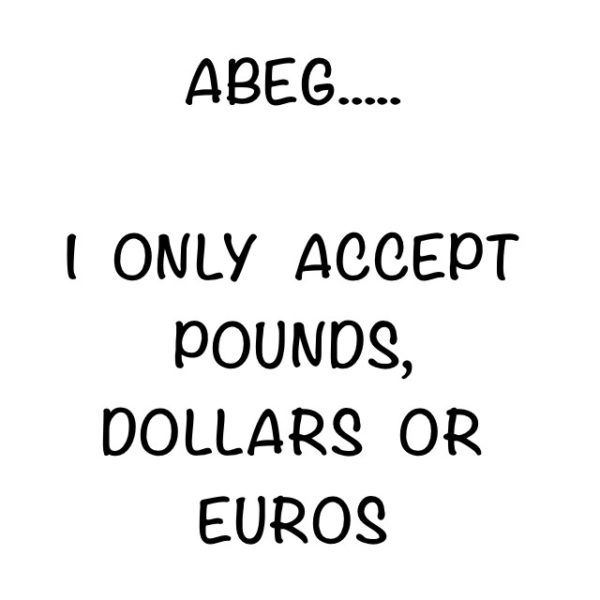Career
Talking Law with Ivie Omoregie: Vendors Charging Clients in Dollars May Not Be Breaking any Laws
 I must stress that, although this article addresses one’s right to consummate a business transaction in a currency other than the Naira, I am an avid supporter of the #BuyNaijaToGrowTheNaira campaign. I believe it is vital to our development as a nation that we look within in order to develop the economy.
I must stress that, although this article addresses one’s right to consummate a business transaction in a currency other than the Naira, I am an avid supporter of the #BuyNaijaToGrowTheNaira campaign. I believe it is vital to our development as a nation that we look within in order to develop the economy.
Anyone living in Nigeria right now will be able to give testimony as to how “interesting” the value of the Naira has become. I don’t know if it’s a spiritual attack or simply madness (well, maybe years of mismanagement… coupled with the fall in oil prices); even the big boys are crying. Many people have readjusted their lifestyles to accommodate a phenomenon that no one has experienced before or seems able to predict the end of.
Recently a friend of mine called me to lament. She is an events organiser who specialises in weddings. Sometime last year she was hired to organise a wedding scheduled for April this year for which she had already agreed to bring in some props from America and China. She had long since given her quote, to which the bride had long since accepted. Unfortunately for my friend, there is a massive difference between the value of the Naira then and the value of the Naira now.
The fact is, even where she allows the new value of the Naira to swallow her professional fees, it would still not absorb the disparity she is facing. Imagine telling the bride that those giant bird cages and the florescent tables you had psyched her to use to decorate the lounge area for the after party would now cost 680k instead of 418k, so she needs to bring more money (I bounced before she had that conversation sha).
It was then that we started playing with the idea of her charging for her services in any other currency other than the Naira. I was yabbing her and asking her to imagine if she had jeje given the bride the bill in dollars…. She stared smiling… business would have been booming right now.
My friend then asked me: “But Ivie is it even legal for me to charge in dollars when the official currency is Naira?”
 The Circular
The Circular
Last year the CBN released a circular condemning the dollarization of the Nigerian economy and reiterating that the official currency of the Federation of Nigeria is the naira. The circular further went on to warn the general public that: –
“it is illegal to price or denominate the cost of any product or service (Visible or Invisible) in any foreign currency in Nigeria and no business offer or acceptance should be consummated in Nigeria in any currency other than the Naira”
There has been a lot of industry arguments on this circular. Most people are of the opinion that under Nigerian law everything has to be priced or negotiated in Naira. But then, what happens to the billions of dollars’ worth of transactions which have been and are still being transacted in dollars? Do these transactions become invalid?
The simple answer is NO!
The Reality
The CBN Act (the “Act”) provides that the official currency in Nigeria is the Naira, and that any person who refuses to accept the Maira as a means of payment is guilty of an offence liable to a fine or 6 months imprisonment. It is based on these provisions that the circular was premised.
It would seem that in purporting to create control measures, the CBN has misapplied the concept of legal tender, in turn affecting the parties’ right to contract as they please, in their chosen currency.
The Act merely states that the official currency in Nigeria is the naira, thus anyone who refuses to accept the naira is guilty of an offence. There is nothing in the Act which limits the currency used to price or denominate the cost of any product or service to the Naira; neither does the Act exclude the use of other currencies where there are consenting parties. Fundamentally, where both parties to a transaction agree, one cannot say any of them has refused to accept the Naira as a means of payment. They have merely made the informed decision to transact in another currency, for which they have every right to do. In reality, where all parties are willing, there is very little that can be done anyway.
However, where the party to which one is contracting with insists that the entirety of the transaction be nominated in the Naira, one would not have sufficient legal ground upon which to compel them. Acting otherwise might be construed as a refusal to accept the Naira as a means of payment, thus in breach of the provisions of the Act.
Conclusion
In summary it must be stressed that the Act contains provisions which make the Naira the legal tender for Nigeria,; however, the Act does not prohibit the use of other currencies in the consummation of transactions.
As you can imagine my friend has now sharply changed all her business templates to denote Dollars and her American accent seems stronger than ever.
I must stress that deciding to transact in a currency other than the Naira is down to personal choice. However being able to access the CBN rates is another matter entirely worthy of its own article.























